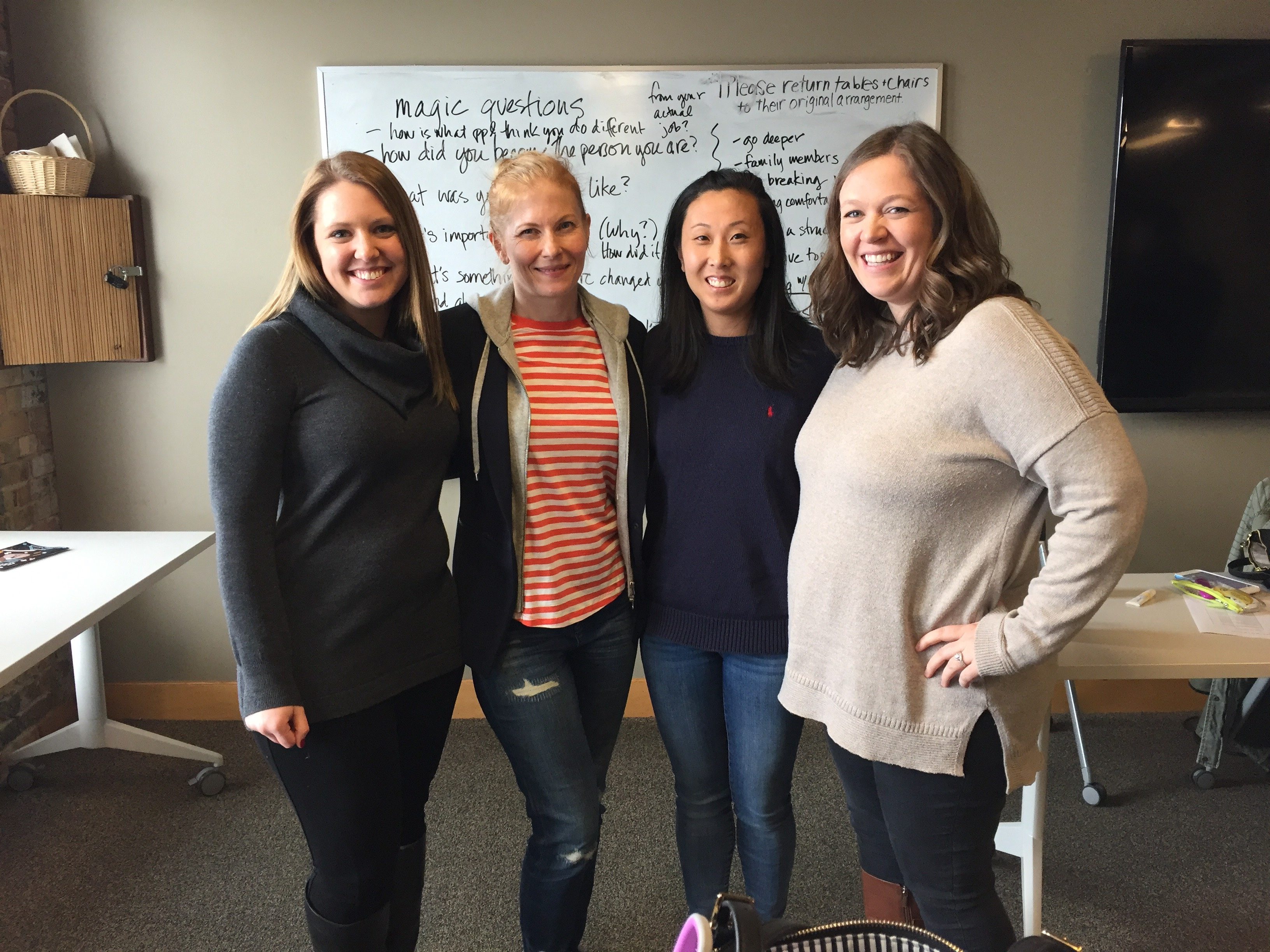As public relations professionals, it’s no secret how much our industry has changed over the years, but one thing has always stayed the same: We help tell our clients’ stories.
Some members of the Bellmont Partners team had the opportunity to spend time with political columnist and culture critic Ana Marie Cox as part of the Loft Literary Center’s Saturday workshops. Cox has a podcast called “With Friends Like These,” where she conducts interviews with people from a variety of political, racial and religious backgrounds and she spent more than two years as the New York Times Magazine’s Talk columnist. In the workshop, she shared many of the learnings she’s accumulated throughout her career about how to be a great interviewer, but there was one that resonated most strongly with us: Be curious.
As a team of 14 naturally curious individuals – several of whom are former journalists – we realized much of what Cox shared is something we apply to our work already, but her experiences really inspired us to stoke the flames of curiosity when it comes to interviewing and asking questions of our clients, their customers and other audiences, no matter if we’re writing an article, blog post, newsletter or white paper.
Below are a few tips Ana Marie shared to structure our interviews in a way that allows us to be curious and sets us up for success in the interviews we conduct.
Break the ice by revealing “the secret.” At the beginning of an interview, let your interview subject in on “the secret,” or your focus for the story, so you can establish trust with the interviewee. Share your overarching question and what you (and your readers) are curious about.
By identifying the interview’s intention upfront with the interview subject, you can streamline the questions to focus on the subject’s lived experiences and build trust. We frequently interview clients to identify key background information to highlight while developing award nominations. Oftentimes, award nominations can be very in-depth, and we need to learn quite a bit about how an executive’s career was shaped, what factors contributed to their growth, how they give back to their community and more. Our client PeopleNet’s EVP & CTO Mark Botticelli was just named a finalist for the Minneapolis Orbie Awards, one example of our interview and storytelling work in an award nomination. As soon as we began the interview, we walked Botticelli through the award criteria, and our questions were designed to gather exactly the right information.
Develop and prioritize questions ahead of time. Generally, preparing 20 questions will give you about an hour of interview conversation. By prioritizing, you can make sure to get to the questions that will help you answer your big question within the allotted time. Oftentimes, the answers can lead to a new line of discussion and add essential information to the story that wasn’t originally planned.
The interview’s quality of questions helps shape where the piece will go, and it’s important to capture the interview subject’s passion behind the topic by asking the right questions. By laying the groundwork and preparing good questions that are specifically crafted to help drive the conversation in positive ways, we can be very efficient with our interview subject’s time. We often interview an expert source for just 15 or 20 minutes and take the essence of the conversation to capture their perspective, tone and point of view on a topic before developing a comprehensive, fully realized piece of content. We recently put this approach to work by collaborating with our client Modern Promos on an article that ran on Franchising.com last month. By asking the right questions, together we were able to craft an article that included vibrant, applicable information from the initial interview.
Practice makes perfect! It sounds like a no-brainer, but when it comes to interviewing, the more you practice, the easier it’ll become. No two interviews will be the same and each one will bring up new challenges to navigate and interesting tidbits to fulfill your curiosity.
We’re looking forward to putting these tips and many more into practice as we continue to exercise our innate sense of curiosity and have great conversations with our clients, their customers and other valuable industry experts and produce content that informs, persuades and sparks action.

